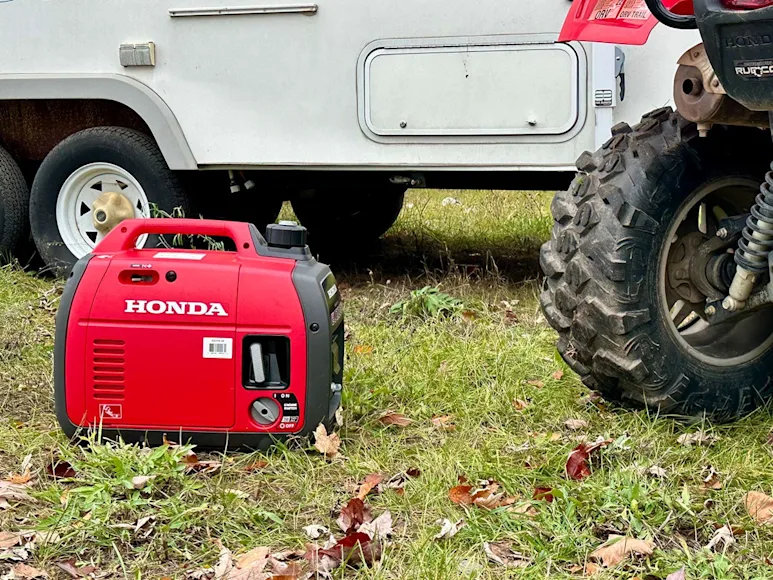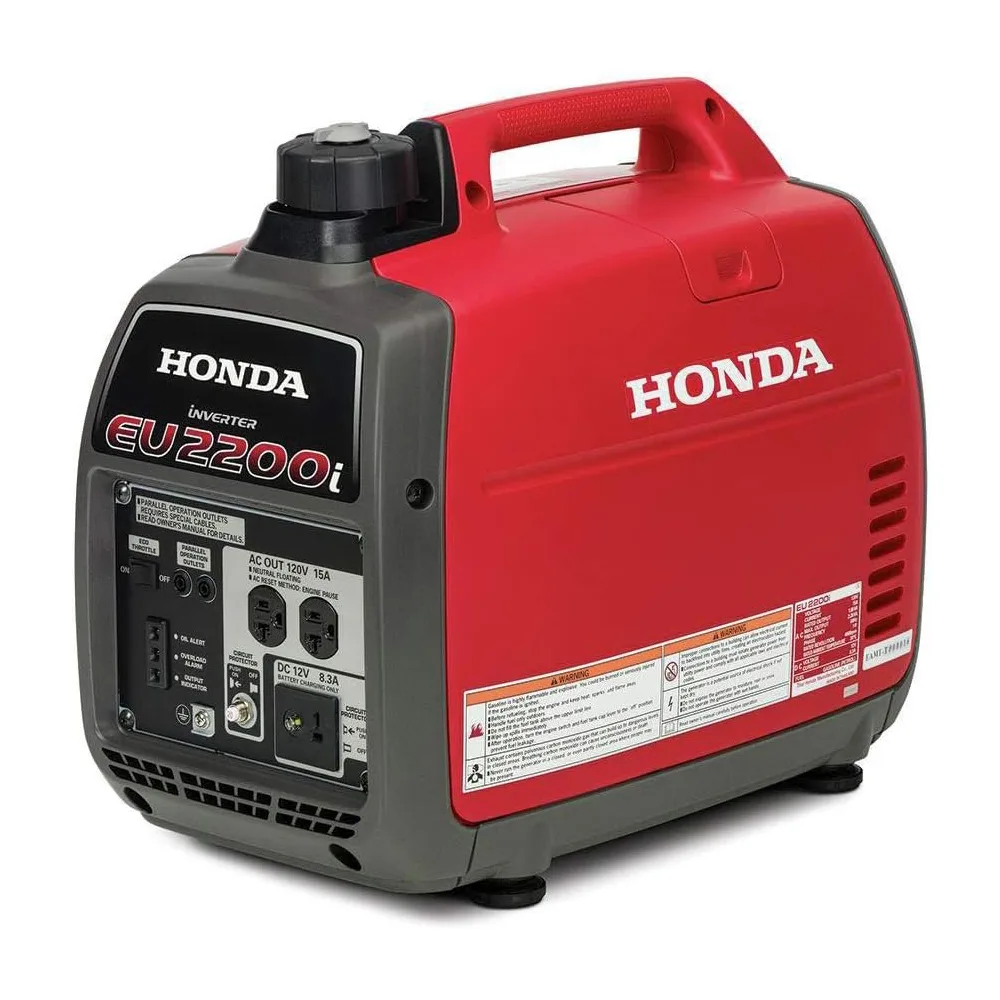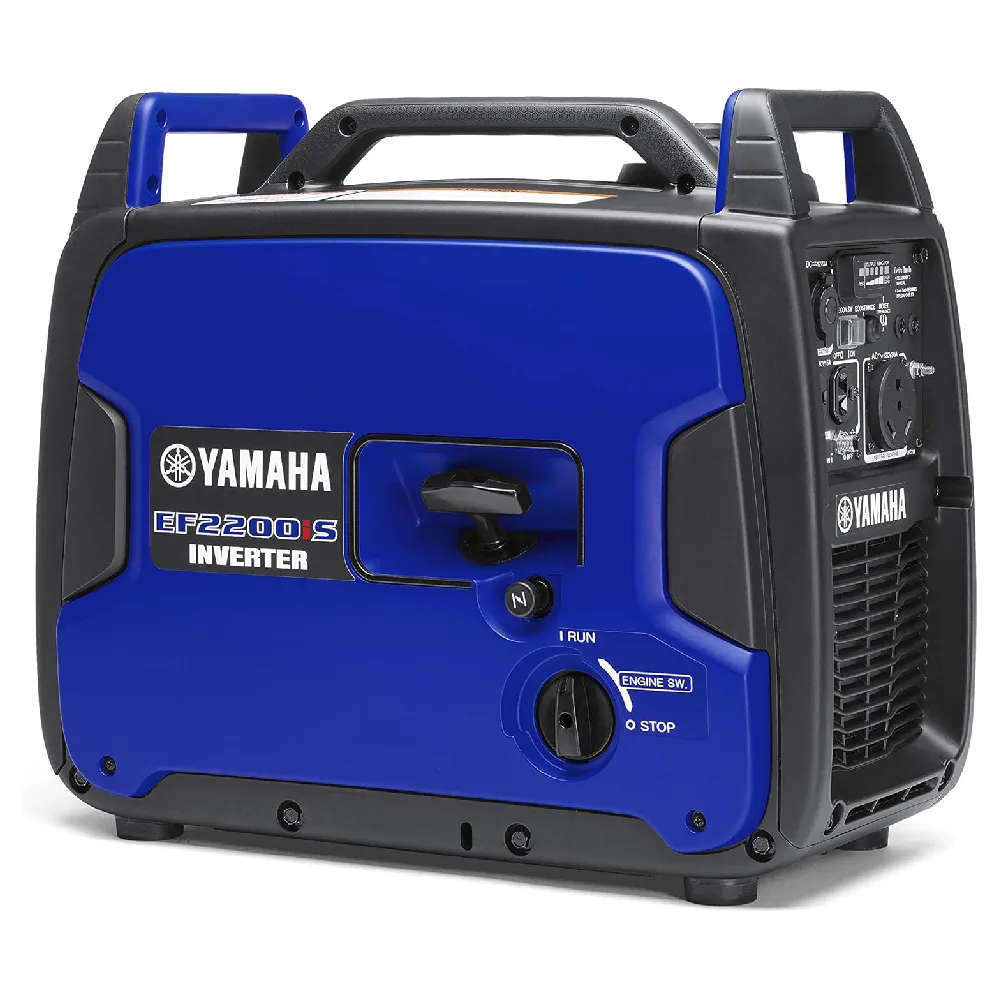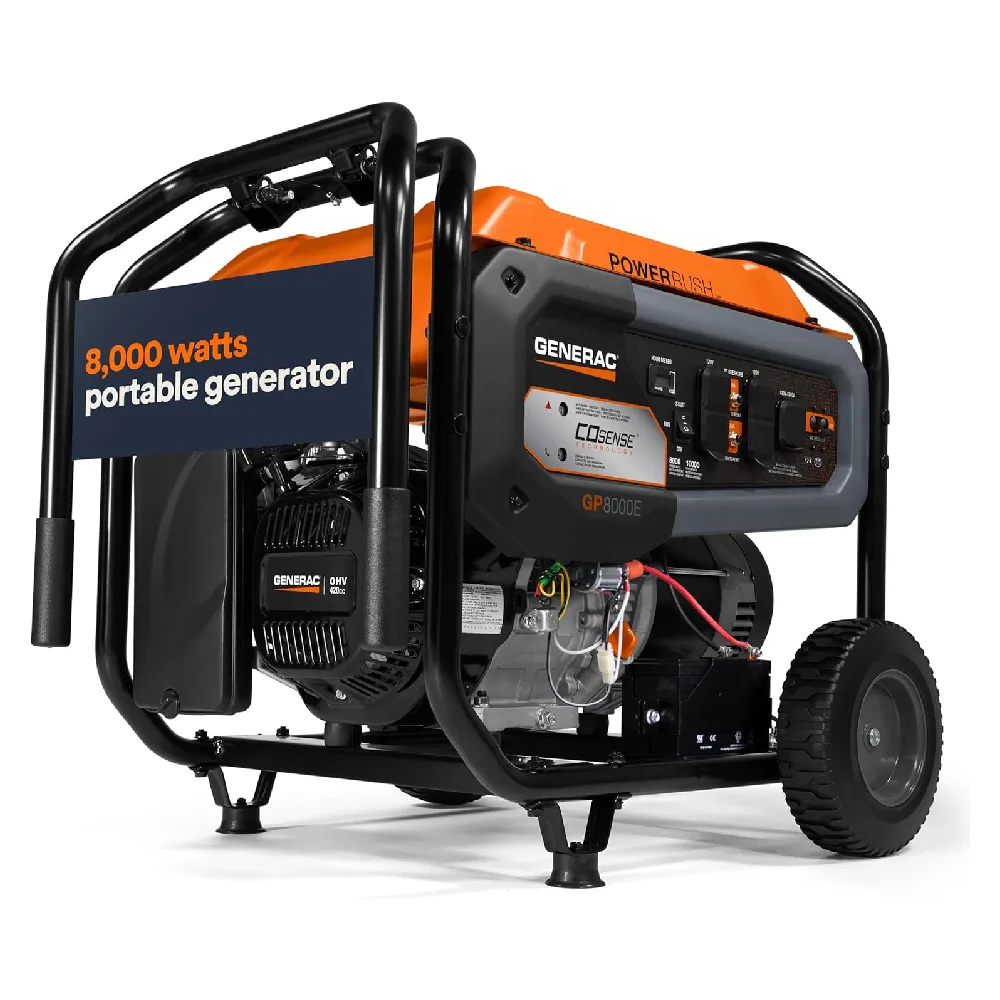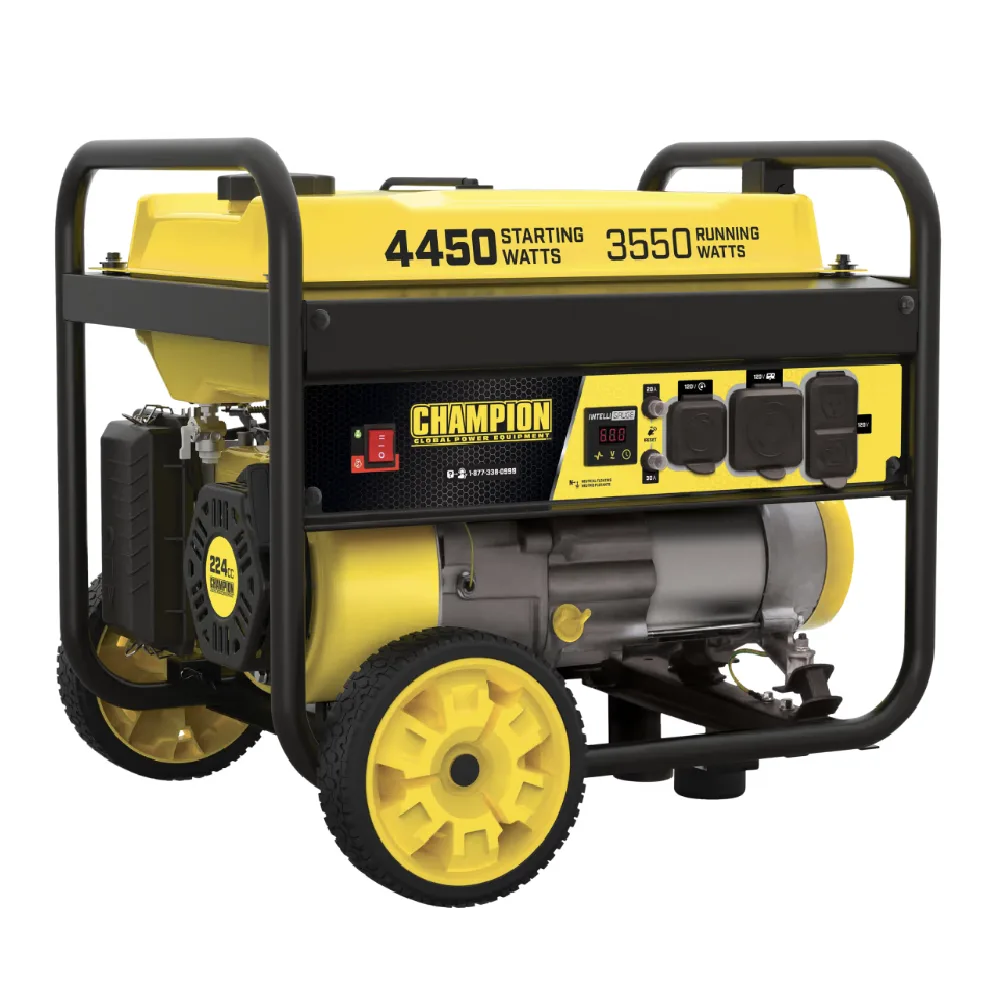We may earn revenue from the products available on this page and participate in affiliate programs. Learn more
A gas generator offers reliable power whenever and wherever you need it. This can be in the event of a power outage in your home, while on a camping adventure, or somewhere in the great outdoors like when you’re building your new deer blind. A good generator is quiet and reliable, and produces enough electricity to power up essential devices and appliances.
With so many options out there, it can be overwhelming to know which one will fit your specific needs. Fortunately, we have a lot of experience with generators from brands like Generac, Honda, and Champion. We’ve used and tested a lot of units, some of which we’ve relied on for many years for camping, home backup, and remote electrical needs. If they aren’t reliable, they don’t make this list, so rest assured knowing that every one of the best gas generators below is one that will get the job done.
Best Overall: Honda EU2200i Inverter Generator
Best Budget: Yamaha EF2000iS Inverter Generator
Best Value: Generac GP8000E
Best Rated: Champion 3550W Weekender Portable Generator
Best Splurge: DuroMax XP15000E
Best Overall: Honda EU2200i Inverter Generator
Specs
Max Power Output: 2,200 watts
Running Power Output: 1,800 watts
Runtime: 8.1 hours on low load
Weight: 46.5 pounds
Sound Output: 47 decibels
Pros
Extremely quiet
Lightweight and easily portable
Ability to run in series with a second unit
Honda reliability
Cons
None—it takes the top spot for a reason
For its power range, the Honda checks every box. It is quiet, lightweight, and extremely portable. This gas-powered inverter generator produces a maximum of 2,200 watts of electricity, so it will run most appliances, making it a great back-up for the freezer when the power goes out. But what it’s really best for is camping. It’s lightweight at just a little over 46 pounds, and the carry handle adds to its portability. It is quiet, too, making just 47 decibels at low draw and up to a maximum of 57 decibels. This makes this generator quieter than the average conversation between two people.
One of the key features that separates the Honda from the competition is its ability to run a second unit in series, doubling the power output. By adding a second EU2200i generator via the available connecting cable, you can double the output to a peak 4,400 watts, or run a higher-draw appliance for a longer period of time than you could with just one generator. This is possible because of the lowered power draw on the combined generators.
I can’t undervalue Honda’s legendary reliability, either. As long as you have gas and oil in it, it is going to run. Honda also added an internal carbon monoxide detector to help keep you safe when using it, although you should never use any internal combustion engine in an enclosed space.

My first exposure to a Honda generator was an older version of this model. I was visiting a remote Alaskan salmon sampling station run by ADFG. The biologists could run all of their electronic devices, including a heater and computers from one small generator. That was 18 years ago and according to the regional biologist as of last year, they are still using that same Honda generator.
Best Budget: Yamaha EF2000iS Inverter Generator
Specs
Max Power Output: 2,000 watts
Running Power Output: 1,600 watts
Runtime: 10.5 hours on low load
Weight: 44.1 pounds
Sound Output: 51.5 decibels
Pros
Amazing Yamaha reliability
Very quiet
Lightweight
Large fuel tank
Low-oil shutoff
Cons
Oil fill is tricky if you don’t have a funnel
I have had a Yamaha EF2000iS Inverter Generator for several years now and it has never failed me. I’ve used it for camping, during power outages, and to run power tools when building a remote deer hunting blind. I even used it to run an inflatable bounce house during a fun day at my kid’s school. Yamaha is another company known for legendary reliability, and it shows with every product I have ever used from them.
This gas generator produces a max of 2,000 watts, with a running load of 1,600 watts. Like the Honda, it is designed to run in series should you have two units, a major plus for those times when you need a bigger draw. This unit is not quite as quiet as the Honda, but the sound output is low, especially on low load. The Yamaha will drop down into whisper mode. My father-in-law has borrowed it several times and compares it to running a small fan on your nightstand.
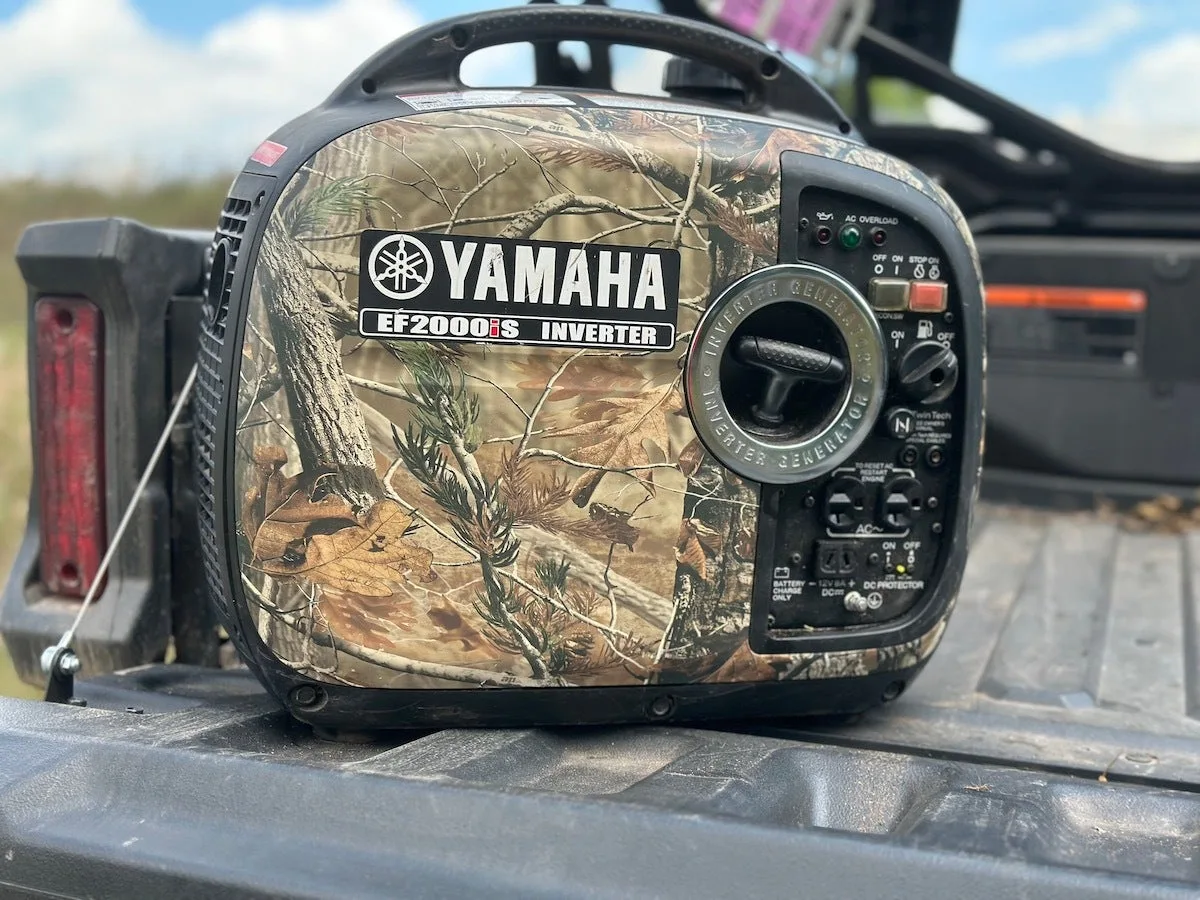
The Yamaha has a low-oil automatic shutoff that lets you know if you need to add oil before any damage is done. Accessing the air-cooled motor is a breeze with the easily removable side panel. The only drawback I have had with this unit is that adding oil without a funnel is not the easiest thing to do. However, storing the generator is easy, thanks to the gas shutoff petcock. Simply add some Sta-Bil fuel stabilizer, start it up, shut off the gas and let the carburetor run dry.
Best Value: Generac GP8000E
Specs
Max Power Output: 8,000 watts
Running Power Output: 7,000 watts
Runtime: 11 hours on 50% load
Weight: 200 pounds
Sound Output: N/A
Pros
Power output
Electric start
CO2 detector
Reliability
Long run time
Wheels make it more portable
Cons
Not as quiet
Heavy
Generac is widely known and respected for their power products and they make some of the best generators available today. The GP8000E is a terrific gas-powered generator for running your home, cabin, or RV. It pumps out 8,000 watts of power and has what Generac calls PowerRush Advanced Technology. The system produces more power right from start-up— 30% more to be exact—to help you power appliances and more. There is no need to let the generator build up to a higher wattage. Starting the unit is pretty easy, too, with electric start, which is a big advantage when the engine is cold.
The GP8000E uses a 420cc 4-stroke Generac OHV engine that features splash lubrication to keep the motor lubed at all times. This helps with start-up stress on the motor, helping it last longer and remain reliable. The motor also has a built-in COSense integrated carbon monoxide detection system that continuously monitors CO levels. The Generac has extended runtime thanks to the large-capacity steel fuel tank and built-in fuel gauge. It will run for 11 hours at 50 percent load, so you can spend more time doing what you want and less time refueling.
When you combine the reliability of the Generac generator with the power output and the handyl features, it’s easy to see what makes this gas-powered generator a great value. I have a friend with an older version of this generator (it lacks the CO2 sensor) and it has never let him down during the multiple years he has owned it. He uses it daily to power his barn.
Best Rated: Champion 3550W Weekender Portable Generator
Specs
Max Power Output: 4,450 watts
Running Power Output: 3,550 watts
Runtime: 14 hours on 50% load
Weight: 105 pounds
Sound Output: N/A
Pros
Reliable and dependable
Low cost
Long run time
Decent output
Portable
Cons
Louder than some
Replacement parts may be harder to get
This mid-sized Champion gas generator makes our list based on a couple of factors. It delivers 4,450 starting watts and 3,550 running watts of power from its 224cc Champion 4-stroke OHV engine. Refueling isn’t something you have to do often as it has a run time of 14 hours at 50 percent load. Champion’s Volt Guard protects against unexpected surges, which are rare anyway from smaller generators, but the added peace of mind helps when running expensive appliances or electronics. Campers will also like the cold start feature that helps get you up and running when the mercury is low. The real highlight, though, is the price. It’s a great value for what you’re paying.
Best Splurge: DuroMax XP15000EH
Specs
Max Power Output: 15,000 watts
Running Power Output: 12,500 watts
Runtime: 18 hours on 25% load
Weight: 418 pounds
Sound Output: 83 decibels
Pros
Extremely powerful
Can power your entire home
Long runtime
Electric start
Quality construction
Cons
Heavy
No recoil back-up for starting
Pricey
This Duromax gas-powered generator is on the expensive side, but if you need a whole lot of electric power, it’s worth the splurge. The 713cc four-stroke motor produces up to 15,000 watts of power, more than enough to power your home. At low load, it will run for 18 hours on a tank of gas, making it a good choice to use as a home back-up generator, or to power an off-grid cabin. It uses quality construction components, like stainless-steel needle bearings, and 100 percent copper windings. This ups the cost but as I mentioned earlier, you get what you pay for. The generator uses a keyed ignition with electric start, although there is no recoil back-up system, which would be a nice touch in the event of a dead battery.
Keeping the Duromax running is easier thanks to an included oil funnel and tool kit to help with basic maintenance. It uses standard 10w-30 motor oil and has a low-oil shutoff. It is a heavy unit, but thankfully has a steel frame with wheels and a pull handle to help you move it into position.
How We Tested Gas Generators
As an avid camper and outdoor enthusiast, I have spent a lot of time around different forms of gas-powered motors, and have several different generators that I use on a regular basis. Additionally, I have friends and family members who own different units, so I have gotten to see firsthand what works for them and what doesn’t. Whether it’s a good thing or not, I live in a rural area that is prone to power outages in bad weather, so I have to rely on generators often enough to keep things running. It makes for some serious experience with what works as the best gas generator.
I’ve tested out several of the top models on the market today and had the opportunity to run many tanks of gas through them to determine which ones perform best. For this specific test, I also looked at:
Power output: Portable generators are available with power outputs ranging from 1,000 watts to well over 14,000 watts.
Sound output: Generators can be noisy, but some run especially quiet. For most uses, the quieter, the better.
Durability: How long a gas generator can operate is very important, as repairs can be pricey and difficult.
Cost: The old adage of “you get what you pay for” is readily apparent when it comes to the best gas generators.
Portability: One of the main advantages of a portable generator is the ability to take it where you need it. Some generators are more portable than others.
What To Consider When Choosing a Gas Generator
You may think that a generator creates electricity. They really don’t, but we say they do to simplify things. In reality, generators convert mechanical energy into electrical energy by converting motion and turning it into electricity by taking electrons from the motion and pushing them through an electrical circuit. It essentially converts the energy from the gas that is being used to run the generator motor and pushes that energy through a circuit to “create” electricity. The bigger the motor being used, the more energy is converted, producing more wattage. Here are some things to think about when choosing a generator.
Size and Power Output
Picking the right size gas generator for your needs isn’t that tricky, as long as you have a good idea of what you plan to use it for. If you are camping and want to power a few simple things, a 1,000-watt unit will work fine. Adding a few more items would mean stepping up to a 2,000-watt unit. You can also use these to power appliances during a power outage.
Bigger RVs and cabins require more power, so a 4,000-watt unit or bigger is a better option. Small homes can run on a 10,000-watt generator just fine, and bigger homes call for 13-15,000 watt units. A good rule to operate by is to have a little more generator than you really need. If you go up a little in size, the generator operates at a lower load, saving fuel and wear and tear on the motor.
Type
You may have noticed that some of the generators on this list are inverter generators. An inverter does the same basic thing a regular generator does, except it pushes the electrons in a different way. Most generators create alternating current (AC), the same as you have in your home’s electrical outlets. If you want to have something designed for AC current run off of a direct current (DC) power system, you need to invert that power to AC.
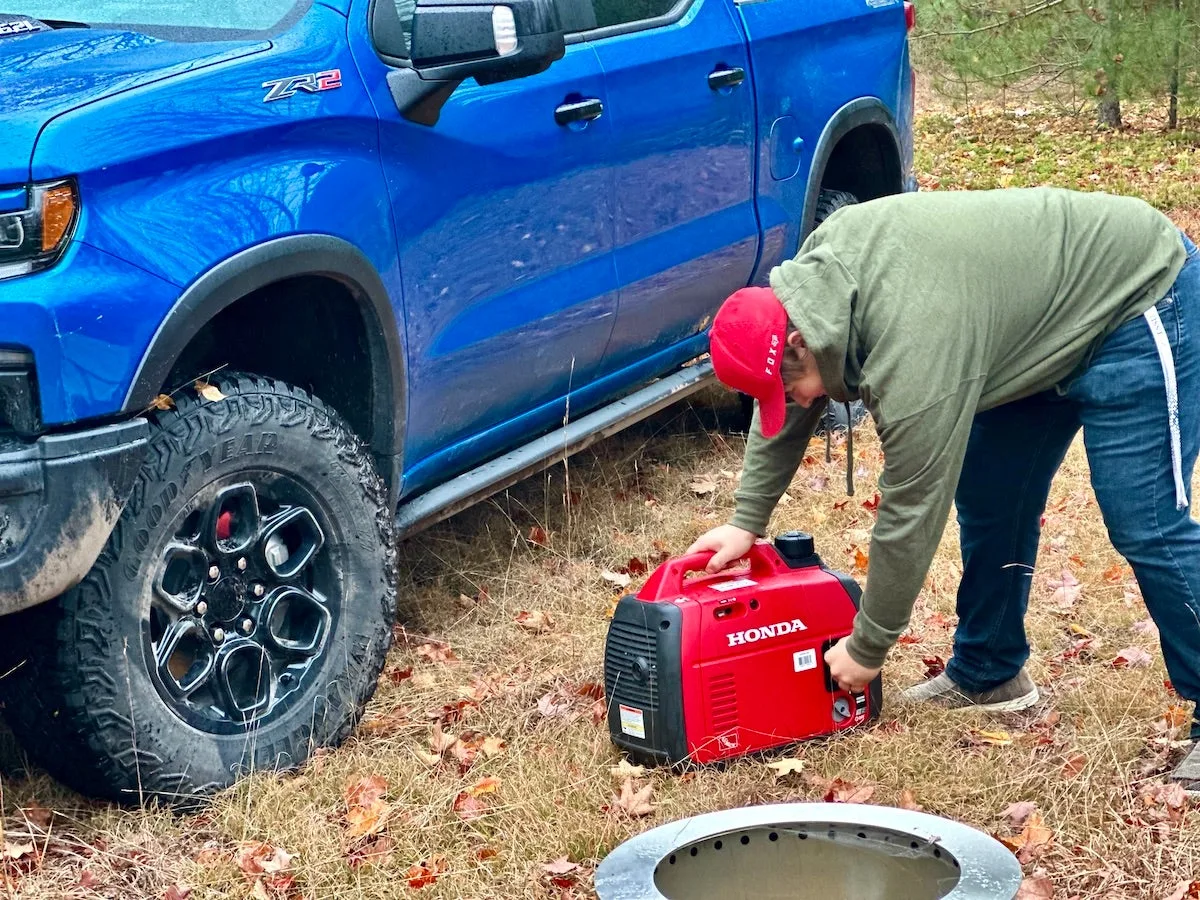
An inverter generator uses the engine to create AC current by generating DC current and then inverting it to AC current. It might sound confusing, but there is logic behind it. DC current is more efficient to generate, so an inverter generator operates cleaner, quieter, and more efficiently than a standard AC generator of similar size. By converting DC power to AC power, the electricity is more stable and better for sensitive appliances. The trade-off is mainly cost, as an inverter generator is often more expensive.
Fuel Type
Generators need some kind of fuel to operate and as you might expect there are several options for fuel types.
Gas: Gas-powered generators run on the same gasoline as your truck. However, check your generator’s owner’s manual for the recommended type of gas. Some may not operate efficiently on high-ethanol fuels.
Propane/natural gas: Many dual fuel generators and home back-up generators run on propane. Propane burns clean and is usually abundant, although it can be pricey at times.
Diesel: It is getting harder to find portable diesel generators, but many large-scale diesel generators run on the same fuel that powers semi trucks.
Solar: Solar generators use solar energy to convert a chemical reaction in the solar panel to an electrical charge that is stored in a battery.
Wind: You can find portable wind turbines that harness the power of the wind to turn a generator and store electrical charge to a battery.
Safety Features
The most important thing to keep in mind for generator safety is to never run a gas generator inside an enclosed space. This goes for any kind of gas generator, too. If it has an internal combustion engine, it needs to be outside in the open air. These types of engines produce lethal carbon dioxide, which is odorless and invisible, but it can kill you and your animals in an enclosed space.
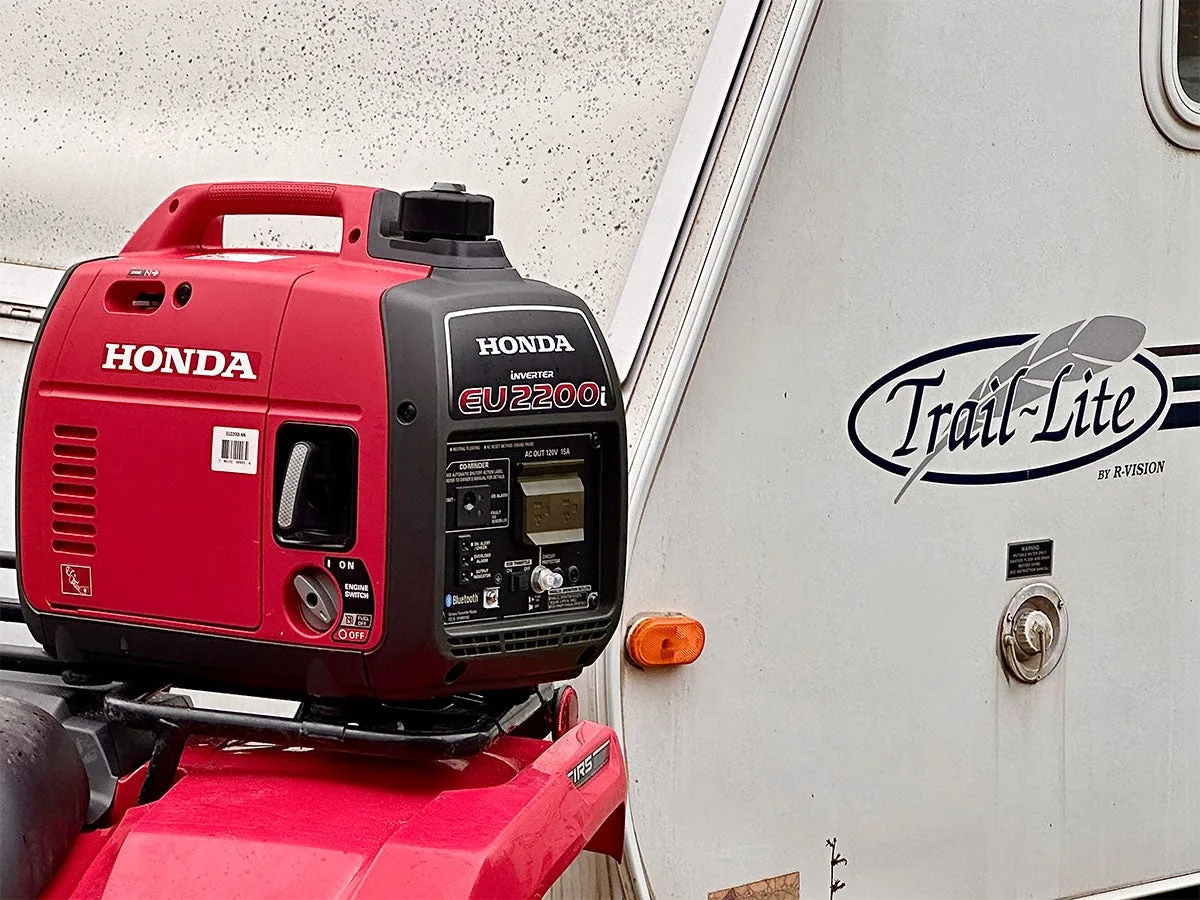
Look for a generator with some form of built-in CO2 detector. Most of the major brands offer one, and it could save your life. What these detectors do is sense when a build up of carbon monoxide is occurring. Most will immediately shut the generator down and send out a warning signal for you to ventilate the area immediately.
FAQs
Q: How long can a gas generator last? With proper maintenance and care, a gas generator should last for years of use. Of course, with a lot of use, engines wear out over time, but most decent units will last for as long as you need them to.
Q: Which is better: a gas or inverter generator? Inverter generators tend to be more efficient and better for sensitive electronics. The trade-off is cost. Most larger generators work efficiently enough that they don’t need inversion.
Q: What size gas generator will run a house? It depends on the size of the house, but for most average family homes, a 10,000-watt gas generator will run most things. If there is a big load put on the system, going up in size is best, so know what you need to run off the generator before you buy it.
Q: How many hours a day can you run a generator? How long a generator can run depends on the load put on it, the size of the generator, and the size of the fuel tank. You should give any gas generator a break every 24-hour day, and perform general maintenance, like checking the oil levels and topping off the fuel. It is also good to just let it cool down naturally to keep it running best.
Q: Can I run my generator in the rain? As with any gas motor, as long as water isn’t getting through into the fuel supply, then yes, you should be able to run a generator in the rain. Keep it elevated and out of any water and make sure the air intake is protected from rain, and you should be good to go.
Q: Is a gas generator better than electric? In terms of efficiency, a gas generator is going to be better than a solar or wind generator simply because it can produce more power in a more compact package. All generators require some kind of fuel. How available that fuel is, however, creates advantages or disadvantages for each style of generator. If you can’t get gas, then you’re out of luck.
Q: Is it cheaper to run a generator on gas? The most economical type of fuel for running a generator really depends on the market, and that fluctuates all the time. When gas is cheap, it is the most economical choice, but when it costs the same as propane, then it comes down to which fuel is the most efficient. In most cases, gas beats propane in a direct comparison of fuel used to wattage produced.
Final Thoughts
A gas generator is one of those things that you probably won’t need to use everyday, but when you do need it, you will be really glad you have one. I find that I use mine more than I expected to, and I am happy I chose a reliable model, which to me is the most important factor. While all of the best gas generators on this list are reliable, the top two are the ones I depend on the most. When I go camping, I generally grab the Honda EU2200i, but would feel just as secure with the Yamaha EF2000iS. You can’t go wrong with any of them.
Why Trust Us
For more than 125 years, Field & Stream has been providing readers with honest and authentic coverage of outdoor gear. Our writers and editors eat, sleep, and breathe the outdoors, and that passion comes through in our product reviews. You can count on F&S to keep you up to date on the best new gear. And when we write about a product—whether it’s a bass lure or a backpack—we cover the good and the bad, so you know exactly what to expect before you decide to make a purchase.

